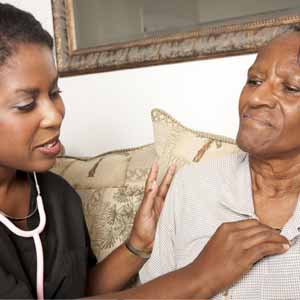Recently, a team of researchers looked at the link between stroke and depression. Their findings might shed some light on how these two separate conditions work, and provide warning signs so that doctors can better treat or prevent each of them.

Researchers have found that the likelihood of suffering depression goes up about two years before a first stroke occurs.
For those that have had a stroke, depressive symptoms are not uncommon. It’s typical to see depression in those that are suffering from a serious medical condition. This can happen even before a diagnosis is made. While the link between stroke and depression might not yet be fully understood, it’s safe to say that depression and anxiety can be present whenever there is a serious medical condition at hand. Unfortunately, this is often how the brain reacts to dealing with major things like this. It doesn’t make the depression any less intense, but the knowledge that it happens does help doctors to be more aware of the root causes of the depression and to be more cognizant that it’s a possibility when working with patients. As a result of this, doctors can get a jump on proactive treatment.
In this current study, researchers start with the observation that some instances of depression begin years before a stroke occurs. With that starting point, they asked the question, is there a link between these two things? They found that people who suffered a stroke often saw worsening signs of depression in the period of two years before the stroke occurred.
This doesn’t mean that depression will ultimately lead to stroke. But it does provide another indicator that someone might be at risk. It’s hard to say why this happens. It’s too early to say that this is definitive evidence that depression worsens before a stroke occurs. However, it does give researchers a starting point for future projects. The team published their findings in the journal, Neurology. Hopefully, it leads to more research here and more preventative measures to help those that are at risk of stroke.
Both strokes and depression can lead to serious health issues, although they do have different manifestations. This is why it’s so important that the care team you work with is thoroughly trained and receives periodic updates to that training. The latest field knowledge is always growing, and we believe it’s important that caregivers stay up to date in this area.
If you’re looking for help–either for yourself or an older loved one–please know that the right resources are out there. We’d love to be one of your team members. We ensure that our caregivers are thoroughly trained and that the person with the right skills and right personality for your family’s unique needs. It’s one of the joys of being a smaller company with a large reach. If you’re looking for an in-home care service that can help out, or you’d just like to learn a little bit more about who we are and how we might help, please feel free to reach out. A consultation session is completely free and comes with no obligation. At the very least, you will walk away knowing a little more about care and how your family might benefit.


Leave a Reply